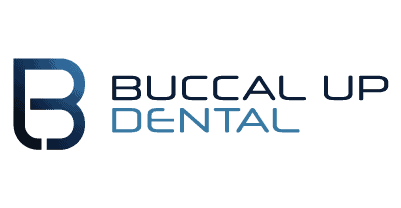
25 Jun The Hidden Costs of Selling a Dental Practice and How to Prepare
The Hidden Costs of Selling a Dental Practice and How to Prepare
Selling a dental practice isn’t just about handing over the keys and collecting a check. It’s an emotional, financial, and legal process that can uncover hidden costs if you’re not prepared. Whether you’re planning to retire or pivot your career, being aware of these less obvious expenses will help you avoid surprises.
Dental professionals often focus on revenue, patient files, and transition timelines, but forget about tax implications, emotional strain, and broker fees—all of which can chip away at the final payout.
Let’s uncover the real costs behind selling your dental practice—and what you can do to prepare.

1. Underestimating Tax Liabilities
One of the biggest pitfalls in selling a dental practice is miscalculating the tax burden.
Types of Taxes When Selling a Dental Practice
-
Capital Gains Tax: You’ll pay this on the appreciated value of your practice.
-
Ordinary Income Tax: Applies to equipment, inventory, or personal goodwill.
-
State Taxes: These vary and can significantly impact your net profit.
Capital Gains and Ordinary Income Explained
If your practice includes hard assets like dental chairs or X-ray machines, those might be taxed at ordinary income rates instead of favorable capital gains rates. A clear asset allocation is essential.
Pro Tip: Work with a dental CPA to structure the sale properly and reduce your overall tax bill.
2. The Emotional Toll: An Overlooked Expense
You’ve built your practice from the ground up. Selling it can be an emotional rollercoaster.
Coping Mechanisms and Mental Preparation
-
Seek emotional support or counseling.
-
Involve family in the planning process.
-
Stay focused on post-sale goals.
Ignoring the emotional cost can lead to burnout, regret, or delays in finalizing the sale.
3. Broker and Legal Fees Can Add Up
A broker typically takes 6-10% of the sale price. Legal and accounting fees could add $10,000–$25,000 or more.
What to Expect From Brokers
-
Valuation services
-
Negotiation assistance
-
Buyer screening
Choosing the Right Legal Support
Not just any attorney will do. Choose one familiar with healthcare or dental transitions.
4. Inaccurate Practice Valuation
Many dentists overestimate their practice’s worth. A bloated asking price can deter buyers and prolong the sale.
How to Get a Fair Market Valuation
-
Hire a third-party valuation expert
-
Use industry benchmarks and recent sales data
-
Analyze EBITDA and collections
Common Mistakes in Self-Valuation
-
Overestimating goodwill
-
Ignoring deferred maintenance
-
Undervaluing accounts receivable
5. The Cost of Poor Financial Records
Messy books can kill deals. Buyers want transparency.
Cleaning Up Your Books Before Listing
-
Ensure accurate income statements
-
Separate personal expenses from business
-
Reconcile accounts and eliminate debt
Keeping clean records isn’t just smart—it’s essential for a high sale price.
6. Transition Period Challenges and Their Cost
Don’t overlook what happens after the sale.
Staff Retention Costs During Transition
-
Retention bonuses
-
Training costs for new management
-
Increased stress impacting productivity
Patient Attrition and Revenue Impact
-
Patients may leave if they’re uneasy with the new owner
-
A gradual handoff can ease the transition
7. Marketing and Sale Preparation Costs
Selling a practice takes more than a Craigslist ad.
Professional Photography and Online Listings
-
Cost: $500–$2,000
-
Benefits: Increased visibility and perceived value
Internal vs. External Marketing Campaigns
-
Internal: Inform patients through newsletters, signage
-
External: Use brokers and practice listing websites
8. Lease and Real Estate Complications
Real estate adds another layer of complexity.
Transferring Lease Agreements
-
Landlords may require lease re-negotiation
-
Subleasing options could be limited
Hidden Costs in Property Ownership
-
Repairs before sale
-
Environmental inspections
-
Transfer taxes
9. Contractual Obligations and Buyout Clauses
Existing contracts may bind you even after the sale.
Employee Contracts and Payouts
-
Severance packages
-
Deferred compensation plans
-
Non-compete clause negotiations
10. Time Investment and Opportunity Cost
Time is money—and selling takes a lot of both.
What You Could Be Doing Instead
-
Seeing patients and generating income
-
Planning for retirement or next ventures
-
Spending time with family
A poorly planned exit can consume 6–12 months or more.

How to Prepare: 10 Strategic Tips
Start Planning 3–5 Years in Advance
Early planning gives you time to organize your finances, increase profitability, and make your practice more appealing to buyers—all while reducing last-minute stress.
Work With a CPA Specializing in Dental Practices
A dental CPA can help you minimize taxes, clean up your books, structure the sale properly, and avoid costly financial mistakes.
Consult a Dental Transition Specialist
These professionals manage the selling process from start to finish, including valuations, marketing, and vetting buyers, so you can stay focused on your practice.
Get a Professional Valuation
Don’t guess your practice’s worth. A third-party valuation gives you a realistic market price, builds credibility with buyers, and supports your asking price.
Organize and Clean Up Financial Records
Ensure your financial statements are accurate and up to date. Separate personal expenses, eliminate unnecessary costs, and resolve outstanding debts.
Optimize Operations and Improve Profit Margins
Streamline systems, reduce overhead, and boost collections. Buyers are drawn to efficient, well-managed practices with strong cash flow.
Update Equipment and Office Aesthetics
Modern, well-maintained equipment and a clean, inviting office environment can make a strong first impression and increase perceived value.
Retain Key Staff and Prepare Them for Transition
A loyal, skilled team is a major asset. Communicate early, maintain morale, and create a retention plan to ensure a smooth handoff.
Review Contracts and Lease Agreements
Check for hidden obligations in staff contracts, vendor agreements, or your office lease. Clear up any issues that could delay or complicate the sale.
Plan Your Post-Sale Strategy
Know what’s next—whether it’s retirement, part-time work, or a new venture. Work with a financial planner to secure your future with the proceeds from the sale.

FAQs
1. How long does it take to sell a dental practice?
On average, it takes 6 to 12 months to sell a dental practice. Timing depends on your location, market demand, pricing, and how well-prepared your financials are. A well-priced, well-marketed practice typically sells faster.
2. Do I need a broker to sell my dental practice?
A broker isn’t required, but hiring one is highly recommended. They handle marketing, vetting buyers, and negotiations, often helping you get a higher price and smoother transaction.
3. What’s the best time to sell a dental practice?
The best time is when your practice shows 3 years of stable or growing collections and strong patient retention. Avoid waiting until you’re burned out or numbers start declining.
4. Can I sell my practice and still work part-time?
Yes, many buyers prefer a transitional period where the seller stays on temporarily. This helps retain patients and staff while providing you with ongoing income and flexibility.
5. How can I increase the value of my practice before selling?
Focus on boosting collections, reducing expenses, updating equipment, and maintaining strong staff and patient relationships. Clean financials and growth potential make your practice more attractive to buyers.
6. Will selling affect my retirement plan?
Yes—your net proceeds from the sale directly impact your retirement. Work with a financial advisor to plan taxes, investment strategies, and long-term income after the sale.
Conclusion: A Smooth Exit Starts with Smart Preparation
Selling your dental practice can be the reward for years of hard work—but only if you prepare wisely. By understanding the hidden costs, from tax burdens to emotional tolls, and following strategic steps, you’ll increase your chances of a profitable, smooth exit.
Don’t go it alone. Leverage expert advice, start early, and plan smart.


Sorry, the comment form is closed at this time.